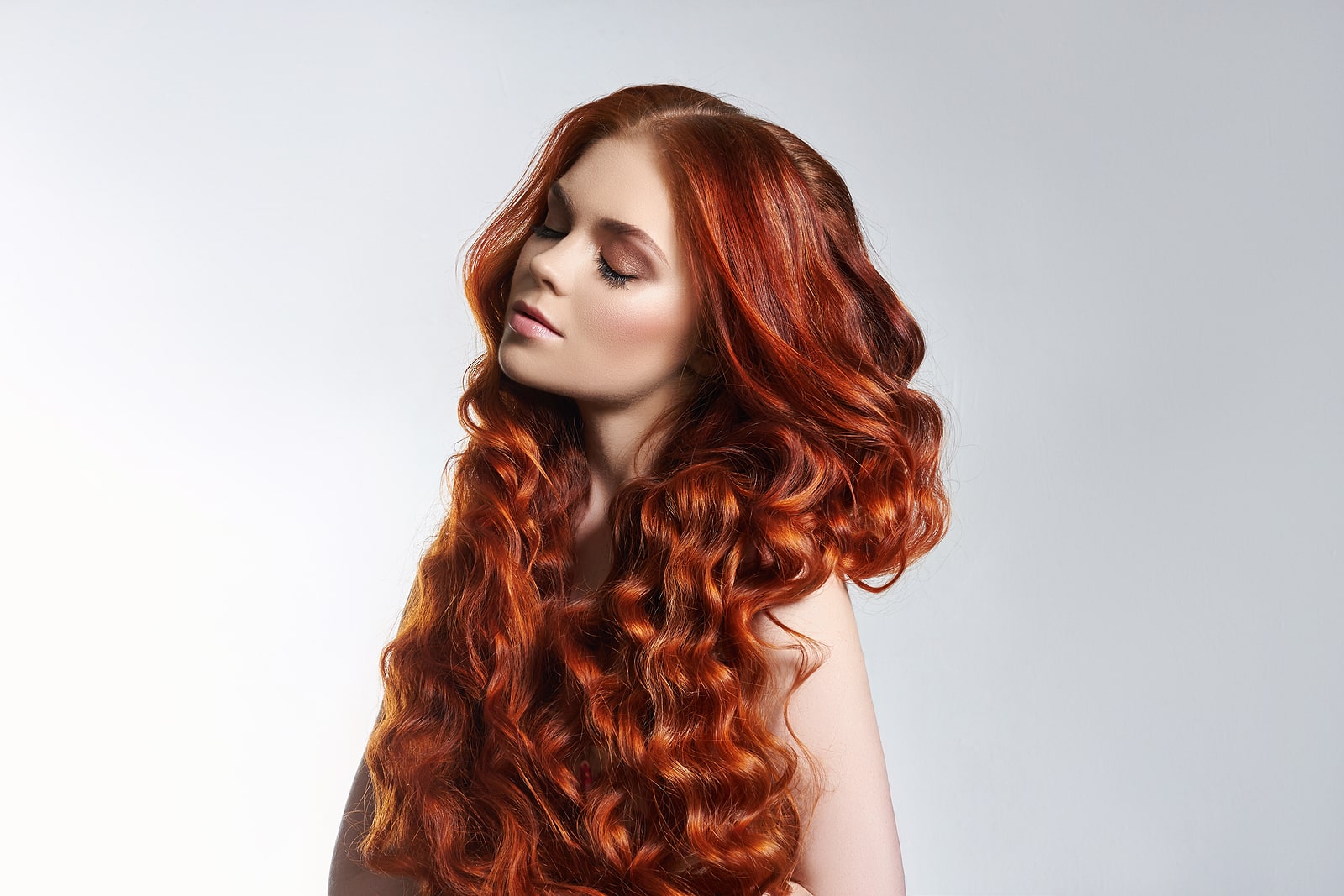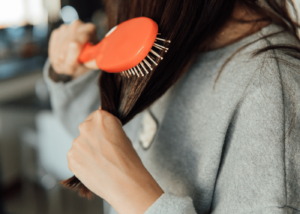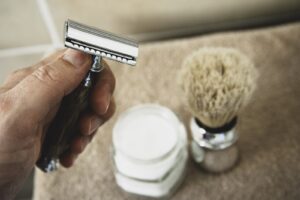Maintaining hair health can be a challenge. Most people want stronger, thicker hair, and it can be difficult to achieve. Hair grows naturally around 0.5 inches per month and 6 inches per year, depending on factors such as health, age, genetics, and diet. Although these things generally cannot be completely changed, it is possible to influence them in a way that can encourage the growth of thicker hair.
1. Moisturize regularly
Moisturizing is one of the most critical parts of maintaining strong hair. Hair is just like skin in its need for hydration. Since hair gets its moisture from the scalp, hair ends tend to be very dry and require extra hydration. Conditioner should be a part of your regular washing routine. In order for thicker hair to grow, the cuticles need to be strong and hydrated. Make sure to drink lots of water in addition to topical treatments.
2. Use sulfate-free shampoo
Sulfate is a harsh cleanser that strips hair of its natural oils. This can cause your hair to feel dry, thin, and brittle. While this can be good for people with excessively oily hair, it can cause frizz and make it difficult to maintain hair health. Sulfates have been indirectly linked to hair loss, particularly in those with sensitive skin. Protein loss from excessive sulfate exposure can also weaken your hair, making it more susceptible to breakage. A lot of shampoos contain sulfates, but sulfate-free options are available. They may feel a little different at first, as they take longer to create suds and may require extra rinsing, but they clean hair just as effectively as those that contain sulfates.
3. Avoid heat styling
Heat styling tools like curlers straightening irons and blow dryers tend to take a toll on hair. People with fine or dry hair are especially susceptible. Too much heat weakens hair, causing damage and frizz. Holding the blow dryer 6 inches away from the surface of the hair and not concentrating too long on one spot can help, as can limiting blow-drying and the use of other heat products to a couple of time a week. You can also use your tools on lower heat settings and use heat protectant products to reduce the chance of damage.
4. Adjust your diet
Proteins and healthy fats
Hair is made of protein. Accordingly, a diet that is high in protein is important for healthy hair growth. Omega-3 fatty acids also promote hair growth. Studies suggest that omega-3 fatty acids like fish oil can reduce inflammation associated with hair loss and make hair appear more hydrated and shiny by promoting circulation in the scalp. Foods that contain healthy fats that may assist in maintaining hair health include:
- Greek yogurt
- Avocados
- Lean poultry
- Flaxseeds
5. Try supplements and vitamins
Like the rest of your body, your hair needs vitamins to be strong and healthy. Studies have shown that nutritional deficiencies may be a cause for hair loss. Modifying your diet to include foods that promote hair growth can help maintain overall healthier hair.
Zinc
Zinc plays a large role in the growth of hair tissue by keeping the oil glands around follicles functioning properly. Studies have shown that taking zinc supplements can help reduce hair loss. Some good sources of zinc include:
- Oysters
- Shrimp
- Rice
- Quinoa
- Dark chocolate
B Vitamins
While the exact causes of hair thinning or hair loss can be hard to identify, it is possible that a deficiency of B vitamins could be the culprit. B vitamins are found in meat, grains, and leafy vegetables and are vital for the health and flexibility of the cell membranes that keep hair strong. B vitamins are found in the following foods:
- Seeds and nuts
- Dairy products
- Egg yolks
- Trout
- Pork
- Legumes
Biotin
An especially important B vitamin is Biotin. Biotin is one of the best-known supplements for growing thicker, healthier hair. It can support the immune system and promote skin, hair, nervous system, and nail health. Biotin is often taken as a supplement or included in multivitamins. Some examples of biotin-rich foods include:
- Liver
- Yeast
- Salmon
- Broccoli
- Sweet potatoes
6. Avoid hair-damaging brushes
Metal brushes are never a good idea, especially if thicker hair is your goal. Instead, try using a boar-bristle brush. Boar-bristle brushes distribute the natural oils in your hair, preventing dryness and frizz. They also massage the scalp and seal hair cuticles, making hair appear shinier and softer. You can also opt for a wide-toothed comb for detangling your hair when it’s wet without causing breakage or damage. Brushing your hair before you wash it will help loosen dandruff and disperse oils along the hair shaft for easier removal.
7. Reduce your washes
Washing your hair too often can strip away the natural oils that keep hair healthy and promote growth. While it might seem daunting trying to change your hair-washing schedule, it’s ultimately better for your hair to skip the washes as often as you can. Even shampooing every other day will help your hair retain the oils it needs to grow more efficiently. You can use dry shampoo between washes if your roots feel too oily.
8. Use masks and treatments
Try incorporating either homemade or store-bought hair masks and deep conditioning treatments into your weekly routine. Things you can add to your hair mask to encourage hydration include:
- Castor oil
- Avocado
- Coconut oil
- Aloe gel
- Olive oil
- Eggs
It’s important to choose treatments based on whether you have thin, coarse, or thick hair, as some hair types require more moisturizing than others. For example, coconut oil is more suitable for those with naturally thicker hair. It is full of fatty acids and anti-fungal agents, which prevent dandruff, but can weigh down thinner hair.
9. Take cooler showers
Most people prefer hot showers, but cooler water is actually preferable when it comes to hair health. Since hot water opens hair cuticles, which helps shampoo and conditioner work more effectively, it’s a good idea to start with hot water and finish with cold. Cold water is preferable for rising product out of your hair because it seals the cuticles back up and locks in moisture. Other effects of cold water on hair include:
- Breakage and frizz control
- Improved blood circulation
- Closed pores and cuticles
- Preservation of natural oils
10. Keep up with regular hair appointments
While trims don’t necessarily make your hair grow faster, they are vital for overall hair health. Breakage makes hair look thinner at the ends, and split ends can cause breakage higher and higher up your strands, preventing growth and thickness. It is recommended that you have your hair trimmed every eight to 12 weeks, but everyone is different. For example, people with shorter hair tend to need freshening up every three to four weeks. Consult your hair stylist about how often your specific hair needs to be trimmed.
Contact us
If you are in need of hair restoration solutions, contact Eldorado today at 410-931-3399 or eldhair1968@gmail.com. We offer industry-leading hair analyses and services to the greater Baltimore, Maryland community.





